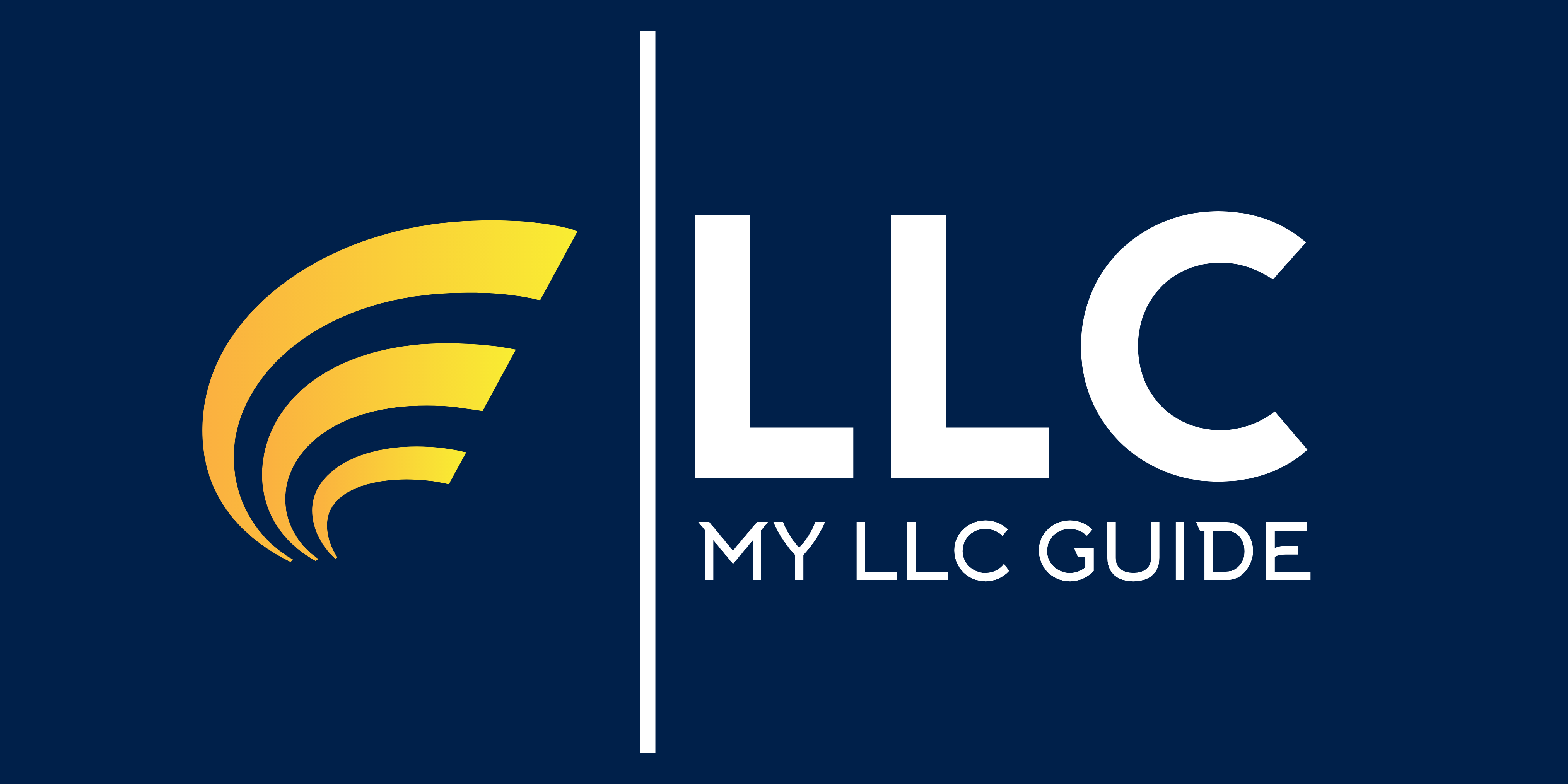
What are the Top 5 Benefits of an LLC? The top benefits of LLC are (1) Limited Personal Liability, (2) Pass-Through Taxation, (3) Easy to Form, (4) Easy to Run, (5) You Can Be Your Own Boss.
Informational Purposes Only
This article is for informational purposes only and does not constitute legal or tax advice. You should consult with a licensed professional regarding your specific business needs. For more see our disclaimer page.
WHAT ARE THE BENEFITS OF FORMING AN LLC?
Forming an LLC comes with many pros. Most people are familiar with its limited liability and tax advantages. But there are many more benefits to LLC companies.
To find out if it’s the best company structure for you and your business we need to find out a little more. Let’s take a close look at the top 5 benefits of an LLC and you can get an idea if it’s a good choice for you.
TOP 5 BENEFITS OF LLC
- Limited Personal Liability
- Pass-Through Taxation
- Easy & Inexpensive to Form
- Easy to Run
- You Can Be Your Own Boss
1: LIMITED PERSONAL LIABILITY
The main benefit of forming an LLC is that it provides limited personal liability to the owner. This means that if the company gets sued – your personal assets are protected. An LLC company is a separate legal entity from its owner.

In legal terms, the company’s assets and your assets are distinctly separate. This means that the owner of an LLC is not personally liable for the debts of their LLC company. Your home, bank account, and other personal assets are protected and out of reach.
However, some instances can place your personal assets at risk. This can happen if you personally guarantee a loan or business debt. Or, if you fail to observe due care that results in harm to a third party or a breach of your duties to your LLC.
2: PASS-THROUGH TAXATION
Another key benefit of an LLC is its tax advantages. LLCs are classed as disregarded entities. This means the companies do not pay any corporate tax on their earnings.
Instead, all earnings are passed through to the owners and taxed at a personal income level. This is known as pass-through taxation. The profits made by an LLC are taxed only once – at a personal level of the owners.
Other company structures have to pay tax twice on their earnings. For example, a C corporation has to pay tax, once at the corporate level and then again at the individual level.
The IRS automatically classes an LLC as a sole proprietorship or general partnership depending on how many members they have. However, you can choose to class your LLC as an S corporation or a C corporation. Let’s take a look at the taxation obligations of each.
SOLE PROPRIETORSHIP TAX
Your LLC will be classed as a sole proprietorship if it has a single owner, (member). A sole proprietorship LLC benefits from pass-through taxation. All company profits pass through to the owner without being subjected to corporate tax.
The owner then pays tax in their personal tax return. Note, that owners of sole proprietorship LLCs are considered self-employed and must pay self-employment taxes, covering Medicare and Social Security.
GENERAL PARTNERSHIP TAX
Your LLC will be automatically classed as a multi-member LLC if it has more than one owner. All earnings the company makes will pass through to the owners without being subjected to corporation tax. Each member will then pay tax on these earnings in their personal tax return. In most cases, members will also have to pay self-employment taxes.
S CORPORATION TAX
If your LLC is classed as an S corporation you can elect to pay yourself a salary from the company. You will then have to pay taxes on the salary received. The remaining company profit then passes through to the LLC members.
Members then pay tax on these earnings in their personal tax returns. However, they do not have to pay self-employment taxes. S corporations benefit from pass-through taxation. All company earnings pass through to the LLC members without having to pay corporate tax.
C CORPORATION TAX
In a C corporation structure – all company profits are subject to corporate tax. And, any earnings received by the LLC members are subject to personal income tax. This form of taxation is known as double taxation. The company earnings are taxed twice.
Members of a C corporation do not have to pay self-employment taxes but they must pay payroll taxes on any salary they receive from the company.
3: EASY TO FORM
Forming an LLC is easy. Compared to other company structures it is a relatively inexpensive process. The cost of forming an LLC varies from state to state but is almost always below $1,000. And, depending on the state you live in – usually much less.
Check out our guide to the Costs of Forming and Maintaining an LLC for detailed figures on each state. We’ve broken down the fees for every state and tabulated them for quick and easy reference.
The steps involved in forming an LLC are also very simple. There is no complicated paperwork and red tape is kept to a minimum. The exact requirements vary depending on the state you choose to register the company.
In general, there are some basic steps you need to take. The most important one will be completing and submitting a form called your ‘Articles of Organisation’. This captures all the details the state authorities need to approve the formation of your LLC.
4: EASY TO RUN
LLC companies are easy to run. Managing an LLC requires less paperwork compared to other corporate structures. An LLC does not have to hold organizational meetings to elect officers, board members, or address shareholders.

On the other hand, corporations must hold regular meetings where the board of directors discuss how the business is being run. And, emergency meetings are called to address unexpected situations as they arise.
In most states, LLCs are not subjected to the same level of requirements and are much easier to run. Many states require reports to be submitted every two years, as opposed to the annual requirement of a corporation. An LLC structure is often a better choice for small businesses that require more flexibility.
5: BE YOUR OWN BOSS
If you want to be your own boss and run your company as you see fit, then an LLC is a great choice. By forming a single-member LLC you will be in complete control of your business and make decisions without having to consult others. Control comes in at number five on our top 5 benefits of an LLC.
An LLC allows you to take advantage of the limited liability protection and tax benefits of a corporate business structure without having to answer to a board of directors. A single member LLC is owned and run by one owner – you!
In a way, it is the best of both worlds. It incorporates many of the benefits of a corporate business structure with the control and flexibility of a sole proprietorship. If you want to be the master of your own ship and have complete control over your business, then an LLC structure could be the perfect fit.
WHAT IS AN LLC?
An LLC is a corporate business structure. LLC stands for “limited liability company”. It is a type of business entity that combines some of the features of a sole proprietorship and partnership with those of a corporation.
An LLC offers its owners limited liability protection. This means that the owner’s assets are separate from the company’s and in most cases cannot be taken to cover company debts.
It also offers a taxation advantage known as pass-through taxation. This means all the company’s earnings pass through to its members without being subjected to corporation tax. The earnings are then taxed as part of each member’s personal income tax.
It is a very popular business structure in the US. An LLC is easy to form and inexpensive to maintain. For more information see – What Is an LLC Company?
HOW TO FORM AN LLC
When we discuss the top 5 benefits of LLC, we also need to take a look at how to start an LLC company. Forming an LLC is straightforward. The precise steps will vary depending on the state you choose for filing your application.

However, in general, there are ten steps you will need to complete.
- Select Your State
- Choose a Company Name
- Assess Articles of Organization Requirements
- Complete Your Articles of Organization
- Nominate a Registered Agent
- Choose Management Structure
- Write an Operating Agreement
- Get an EIN
- Additional Regulatory Requirements
- Annual Reports & Fees
For more information, check out – How to Form an LLC
LLC FORMATION COMPANIES
Need help forming your LLC? You can hire an LLC formation company to do the work for you. These companies process your application and ensure all your paperwork is in order for a small fee. Check out our reviews – The Best LLC Formation Companies 2026.
Hiring a professional to register your LLC gives you the reassurance that everything will be properly taken care of. The best LLC formation companies offer highly professional, easy-to-use services at affordable prices.
Some even offer a free basic service to help get your LLC up and running. If you are new to the LLC formation process or just need time to focus on running your business – then a formation service might be the perfect fit for you.
READ NEXT
- LLC BUSINESS LICENSES – click here
- HOW DO I PAY MYSELF FROM AN LLC? – click here
- WHAT IS AN OPERATING AGREEMENT? – click here
- PROS & CONS OF AN LLC FILING SERVICE – click here
- SMALL BUSINESS EMPLOYEE RETENTION – click here
- LLC FOR PROPERTY RENTALS – click here
- CAN AN LLC BE A HOLDING COMPANY? – click here
OTHER COMPANY FORMATS
- LLC vs SOLE PROPRIETORSHIP – click here
- LLC vs PARTNERSHIP – click here
- LLC vs S CORP – click here
- LLC vs C CORP – click here
LLC FORMATION BY STATE
- CALIFORNIA LLC FORMATION – click here
- TEXAS LLC FORMATION – click here
- FLORIDA LLC FORMATION – click here
- NEW YORK LLC FORMATION – click here
About the Author
Rachel Hall – LLC Specialist
Rachel joined the My LLC Guide team in the spring of 2021. She is a graduate of the McCombs School of Business at the University of Texas. Rachel studied business administration and has a particular interest in strategic decision-making, risk management, and legal and regulatory business requirements.
She is a founding member of a business advisory company that she formed with a group of like-minded McCombs alumni. Outside of business, Rachel likes to volunteer at the Central Texas food bank where she helps prepare food donations for distribution. She is also a keen fan of music and dance and enjoys attending live performances.

LLC companies are easy to run. They allow you to create an operating agreement and choose a management style. After limited liability these are the main benefits of forming an LLC.